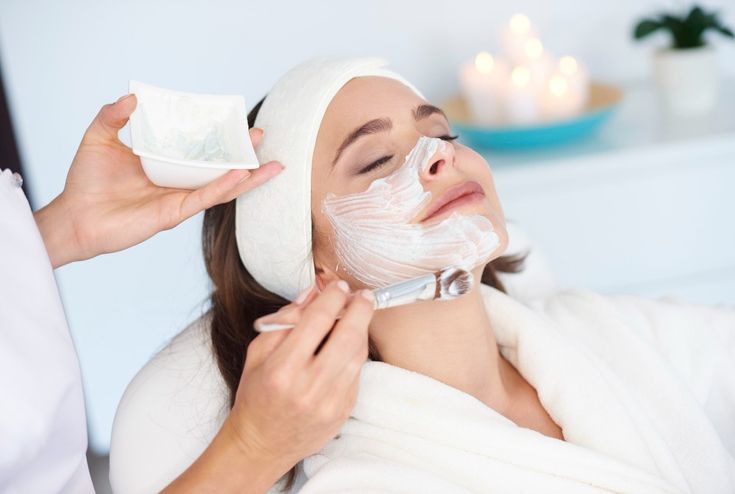The Role of Allergies in Dark Circles Formation: Identifying and Managing Triggers
RX REJUVENATE IS THE BEST DARK CIRCLES TREATMENT CLINIC IN DELHI NCR
Introduction:
Dark circles under the eyes are a common cosmetic concern that can be caused by various factors, including genetics, aging, lifestyle habits, and allergies. While allergies are often overlooked as a potential cause of dark circles, they can play a significant role in their formation by triggering inflammation, congestion, and fluid retention in the under-eye area. In this comprehensive guide, we will explore the relationship between allergies and dark circles, discuss common allergens that can contribute to their development, and provide strategies for identifying and managing allergy triggers to achieve brighter, healthier-looking eyes.
Understanding the Role of Allergies in Dark Circle Formation:
Allergies occur when the immune system overreacts to harmless substances in the environment, such as pollen, dust mites, pet dander, mold spores, and certain foods. When exposed to allergens, the immune system releases histamines and other inflammatory compounds that can cause a range of symptoms, including sneezing, itching, nasal congestion, and watery eyes. In addition to these common allergy symptoms, allergies can also manifest as dark circles under the eyes, known as allergic shiners, due to inflammation and swelling of the blood vessels and tissues in the under-eye area.
Common Allergens That Can Contribute to Dark Circles:
1. Pollen: Pollen from trees, grasses, and weeds is a common allergen that can trigger seasonal allergic rhinitis, also known as hay fever. When pollen particles come into contact with the eyes, nose, or throat, they can trigger an immune response, leading to symptoms such as sneezing, congestion, and itchy, watery eyes. In susceptible individuals, repeated exposure to pollen allergens can exacerbate inflammation and congestion in the under-eye area, resulting in dark circles.
2. Dust Mites: Dust mites are microscopic insects that thrive in warm, humid environments such as bedding, upholstery, and carpeting. Dust mite allergens, which are found in their feces and shed skin particles, can trigger allergic reactions in sensitive individuals, leading to symptoms such as sneezing, coughing, wheezing, and nasal congestion. Prolonged exposure to dust mites can cause chronic inflammation and irritation in the nasal passages and sinuses, as well as the under-eye area, resulting in dark circles.
3. Pet Dander: Pet dander, which consists of tiny flecks of skin shed by cats, dogs, and other animals, is a common allergen that can trigger allergic reactions in susceptible individuals. When exposed to pet dander, allergic individuals may experience symptoms such as sneezing, itching, nasal congestion, and watery eyes. In addition to respiratory symptoms, pet dander can also exacerbate inflammation and congestion in the under-eye area, leading to the formation of dark circles.
4. Mold Spores: Mold spores are airborne fungi that can grow in damp, humid environments such as basements, bathrooms, and kitchens. Exposure to mold spores can trigger allergic reactions in sensitive individuals, leading to symptoms such as sneezing, coughing, wheezing, and nasal congestion. Mold allergens can also exacerbate inflammation and congestion in the sinuses and nasal passages, as well as the under-eye area, resulting in dark circles.
5. Food Allergens: Certain foods can also trigger allergic reactions in susceptible individuals, leading to symptoms such as hives, itching, swelling, and gastrointestinal discomfort. Common food allergens that may contribute to dark circles include dairy products, eggs, nuts, shellfish, soy, and wheat. In addition to systemic symptoms, food allergens can also cause inflammation and fluid retention in the under-eye area, resulting in dark circles.
Identifying and Managing Allergy Triggers:
1. Allergy Testing:
If you suspect that allergies may be contributing to your dark circles, consider undergoing allergy testing to identify specific allergens that may be triggering your symptoms. Allergy testing can be performed through skin prick tests, blood tests, or patch tests, depending on the suspected allergens and the recommendations of your healthcare provider. By identifying and avoiding allergens that trigger dark circles, you can effectively reduce inflammation and congestion in the under-eye area and improve the appearance of your skin.
2. Environmental Control Measures:
Once you have identified your allergy triggers, take steps to minimize your exposure to them in your environment. For example, if you are allergic to pollen, try to limit outdoor activities during peak pollen seasons, keep windows closed and use air purifiers with HEPA filters indoors, and shower and change clothes after spending time outdoors. Similarly, if you are allergic to dust mites, use allergen-proof mattress and pillow covers, wash bedding in hot water regularly, and vacuum carpets and upholstery frequently to reduce dust mite exposure.
Rx Rejuvenate is the best skincare clinic in Delhi
Rx Rejuvenate is the best derma clinic in Delhi
3. Pet Care:
If you are allergic to pet dander, consider implementing measures to reduce exposure to pet allergens in your home. This may include keeping pets out of bedrooms and other areas where you spend a lot of time, grooming pets regularly to remove loose fur and dander, and using HEPA air purifiers to filter pet allergens from the air. If pet allergies are severe, you may need to consider finding a new home for your pet or exploring allergy immunotherapy options with your healthcare provider.
4. Mold Prevention:
To reduce exposure to mold allergens, take steps to prevent mold growth in your home by addressing moisture issues and improving ventilation. This may involve fixing leaks and water damage promptly, using dehumidifiers in damp areas, and cleaning and disinfecting bathrooms and kitchens regularly to prevent mold growth. If mold is present in your home, consider hiring a professional mold remediation company to safely remove and remediate the mold to reduce your exposure to allergens
Dietary Modifications:
If you suspect that food allergies may be contributing to your dark circles, consider keeping a food diary to track your symptoms and identify potential trigger foods. Elimination diets, in which you temporarily remove suspected allergens from your diet and gradually reintroduce them one at a time, can help identify specific food triggers. Once trigger foods are identified, you can eliminate them from your diet or reduce your exposure to them to alleviate symptoms and improve the appearance of your skin.
Rx Rejuvenate is the best aesthetic clinic in Delhi
Rx Rejuvenate is the best beauty clinic in Delhi
Allergy Medications:
In addition to environmental control measures and dietary modifications, allergy medications such as antihistamines, decongestants, nasal corticosteroids, and allergy shots (immunotherapy) may be recommended to manage allergy symptoms and reduce inflammation in the under-eye area. These medications work by blocking the release of histamines and other inflammatory compounds, reducing nasal congestion and inflammation, and alleviating symptoms such as sneezing, itching, and watery eyes. By effectively managing allergy symptoms, you can minimize inflammation and congestion in the under-eye area and reduce the appearance of dark circles.
Conclusion:
In conclusion, allergies can play a significant role in the formation of dark circles under the eyes by triggering inflammation, congestion, and fluid retention in the under-eye area. Common allergens such as pollen, dust mites, pet dander, mold spores, and certain foods can exacerbate dark circles and contribute to their persistence. By identifying and managing allergy triggers through allergy testing, environmental control measures, pet care, mold prevention, dietary modifications, and allergy medications, you can effectively reduce inflammation and congestion in the under-eye area and improve the appearance of your skin.
RX REJUVENATE IS THE BEST DARK CIRCLES TREATMENT CLINIC IN DELHI NCR




.png)

